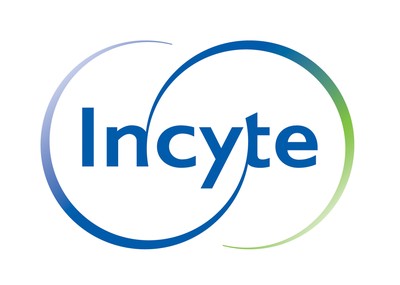Eli Lilly and Company (NYSE: LLY) and Incyte Corporation (NASDAQ: INCY) announced today that the U.S. Food and Drug Administration (FDA) has granted Fast Track designation to baricitinib,
| INDIANAPOLIS, /PRNewswire/ -- Eli Lilly and Company (NYSE: LLY) and Incyte Corporation (NASDAQ: INCY) announced today that the U.S. Food and Drug Administration (FDA) has granted Fast Track designation to baricitinib, which is being studied for the treatment of systemic lupus erythematosus (SLE). The Fast Track designation process aims to facilitate the development and expedite the review of new medicines that treat serious conditions and fill unmet medical needs, with the goal of delivering potentially important therapies to patients sooner. Earlier this year, positive results of a Phase 2 study of baricitinib for the treatment of SLE, which informed the FDA’s Fast Track designation, were published by The Lancet and presented at the European Congress of Rheumatology.1 “There has been only one new treatment for SLE approved in the U.S. in the past 50 years, and Lilly is excited to be at the forefront of potentially bringing a new treatment option to patients with this chronic, multi-organ autoimmune disease that can cause widespread tissue damage,” said Lotus Mallbris, M.D., Ph.D., vice president of immunology development at Lilly. “As part of the Fast Track designation, we will work closely with the FDA to further explore baricitinib’s potential as a treatment that can provide meaningful improvements for people with SLE.” Lilly is currently studying two doses of baricitinib in Phase 3 SLE trials. Additionally, Lilly is investigating baricitinib as a potential treatment for moderate to severe atopic dermatitis, a serious form of eczema, with Phase 3 results projected to be shared during the first half of 2019. Baricitinib is approved in over 50 countries globally as OLUMIANT® for the treatment of adults with rheumatoid arthritis. Indication and Usage for OLUMIANT (baricitinib) tablets (in the United States) for RA patients IMPORTANT SAFETY INFORMATION FOR OLUMIANT (baricitinib) tablets WARNING: SERIOUS INFECTIONS, MALIGNANCY, AND THROMBOSIS SERIOUS INFECTIONS: Patients treated with Olumiant are at risk for developing serious infections that may lead to hospitalization or death. Most patients who developed these infections were taking concomitant immunosuppressants such as methotrexate or corticosteroids. If a serious infection develops, interrupt Olumiant until the infection is controlled. Reported infections include:
Carefully consider the risks and benefits of Olumiant prior to initiating therapy in patients with chronic or recurrent infection. Closely monitor patients for the development of signs and symptoms of infection during and after treatment with Olumiant including the possible development of TB in patients who tested negative for latent TB infection prior to initiating therapy. MALIGNANCIES: Lymphoma and other malignancies have been observed in patients treated with Olumiant. THROMBOSIS: Thrombosis, including deep venous thrombosis (DVT) and pulmonary embolism (PE), has been observed at an increased incidence in patients treated with Olumiant compared to placebo. In addition, there were cases of arterial thrombosis. Many of these adverse events were serious and some resulted in death. Patients with symptoms of thrombosis should be promptly evaluated. WARNINGS AND PRECAUTIONS SERIOUS INFECTIONS: The most common serious infections reported with Olumiant included pneumonia, herpes zoster, and urinary tract infection. Among opportunistic infections, tuberculosis, multidermatomal herpes zoster, esophageal candidiasis, pneumocystosis, acute histoplasmosis, cryptococcosis, cytomegalovirus, and BK virus were reported with Olumiant. Some patients have presented with disseminated rather than local disease, and were often taking concomitant immunosuppressants such as methotrexate or corticosteroids. Avoid Olumiant in patients with an active, serious infection, including localized infections. Consider the risks and benefits of treatment prior to initiating Olumiant in patients:
Closely monitor patients for infections during and after Olumiant treatment. Interrupt Olumiant if a patient develops a serious infection, an opportunistic infection, or sepsis. Do not resume Olumiant until the infection is controlled. Tuberculosis – Before initiating Olumiant evaluate and test patients for latent or active infection and treat patients with latent TB with standard antimycobacterial therapy. Olumiant should not be given to patients with active TB. Consider anti-TB therapy prior to initiating Olumiant in patients with a history of latent or active TB in whom an adequate course of treatment cannot be confirmed, and for patients with a negative test for latent TB but who have risk factors for TB infection. Monitor patients for TB during Olumiant treatment. Viral Reactivation – Viral reactivation, including cases of herpes virus reactivation (e.g., herpes zoster), were reported in clinical studies with Olumiant. If a patient develops herpes zoster, interrupt Olumiant treatment until the episode resolves. The impact of Olumiant on chronic viral hepatitis reactivation is unknown. Screen for viral hepatitis in accordance with clinical guidelines before initiating Olumiant. MALIGNANCY AND LYMPHOPROLIFERATIVE DISORDERS: Malignancies were observed in Olumiant clinical studies. Consider the risks and benefits of Olumiant prior to initiating therapy in patients with a known malignancy other than a successfully treated non-melanoma skin cancer (NMSC) or when considering continuing Olumiant in patients who develop a malignancy. NMSCs were reported in patients treated with Olumiant. Periodic skin examination is recommended for patients who are at increased risk for skin cancer. THROMBOSIS: Thrombosis, including DVT and PE, has been observed at an increased incidence in Olumiant-treated patients compared to placebo. In addition, arterial thrombosis events in the extremities have been reported in clinical studies with Olumiant. Many of these adverse events were serious and some resulted in death. There was no clear relationship between platelet count elevations and thrombotic events. Use Olumiant with caution in patients who may be at increased risk of thrombosis. If clinical features of DVT/PE or arterial thrombosis occur, evaluate patients promptly and treat appropriately. GASTROINTESTINAL PERFORATIONS: Gastrointestinal perforations have been reported in Olumiant clinical studies, although the role of JAK inhibition in these events is not known. Use Olumiant with caution in patients who may be at increased risk for gastrointestinal perforation (e.g., patients with a history of diverticulitis). Promptly evaluate patients who present with new onset abdominal symptoms for early identification of gastrointestinal perforation. LABORATORY ABNORMALITIES: Lymphopenia – Absolute lymphocyte count (ALC) <500 cells/mm3 were reported in Olumiant clinical trials. Lymphocyte counts less than the lower limit of normal were associated with infection in patients treated with Olumiant, but not placebo. Avoid initiation or interrupt Olumiant treatment in patients with an ALC <500 cells/mm3. Evaluate at baseline and thereafter according to routine patient management. Anemia – Decreases in hemoglobin levels to <8 g/dL were reported in Olumiant clinical trials. Avoid initiation or interrupt Olumiant treatment in patients with hemoglobin <8 g/dL. Evaluate at baseline and thereafter according to routine patient management. Liver Enzyme Elevations – Olumiant treatment was associated with increased incidence of liver enzyme elevation compared to placebo. Increases to ≥5x and ≥10x upper limit of normal were observed for both ALT and AST in patients in Olumiant clinical trials. Evaluate at baseline and thereafter according to routine patient management. Promptly investigate the cause of liver enzyme elevation to identify potential cases of drug-induced liver injury. If increases in ALT or AST are observed and drug-induced liver injury is suspected, interrupt Olumiant until this diagnosis is excluded. Lipid Elevations – Treatment with Olumiant was associated with increases in lipid parameters, including total cholesterol, low-density lipoprotein cholesterol, and high-density lipoprotein cholesterol. Assess lipid parameters approximately 12 weeks following Olumiant initiation. Manage patients according to clinical guidelines for the management of hyperlipidemia. VACCINATIONS: Avoid use of live vaccines with Olumiant. Update immunizations in agreement with current immunization guidelines prior to initiating Olumiant therapy. ADVERSE REACTIONS USE IN SPECIFIC POPULATIONS HEPATIC AND RENAL IMPAIRMENT: Olumiant is not recommended in patients with severe hepatic impairment or in patients with moderate or severe renal impairment. Please click to access full Prescribing Information, including Boxed Warning about Serious infections, Malignancies, and Thrombosis, and Medication Guide. BA HCP ISI 01JUN2018 About OLUMIANT About Systemic Lupus Erythematosus About Lilly in Immunology About Eli Lilly and Company About Incyte Follow @Incyte on Twitter at https://twitter.com/Incyte. This press release contains forward-looking statements (as that term is defined in the Private Securities Litigation Reform Act of 1995) about OLUMIANT (baricitinib) as a treatment for patients with rheumatoid arthritis and a potential treatment for patients with systemic lupus erythematosus and atopic dermatitis, and reflects Lilly’s and Incyte’s current beliefs. However, as with any pharmaceutical product, there are substantial risks and uncertainties in the process of development and commercialization. Among other things, there can be no guarantee that OLUMIANT will receive additional regulatory approvals or be commercially successful. For further discussion of these and other risks and uncertainties, see Lilly’s and Incyte’s most recent respective Form 10-K and Form 10-Q filings with the United States Securities and Exchange Commission. Except as required by law, Lilly and Incyte undertake no duty to update forward-looking statements to reflect events after the date of this release. 1 Wallace DJ, et al. Lancet. 2018;392(10143):222-231. Kristen Basu; basu_kristen_porter@lilly.com; +1-317-447-2199 (Lilly media)
SOURCE Eli Lilly & Company | ||
Company Codes: NYSE:LLY, NASDAQ-NMS:INCY |


